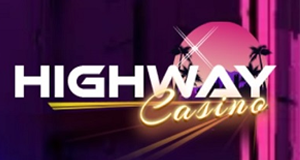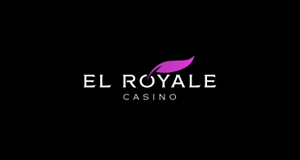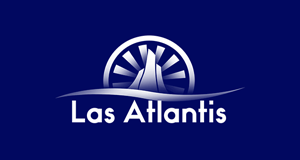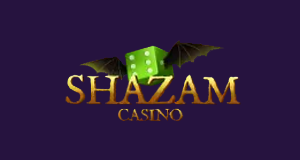Online casinos have become extremely popular. These entertainment establishments offer players the opportunity to discover a variety of games and win prizes.
Do you want to better know how the universe of casinos or learn to ideally choose a site to escape? Here you will find all the information on online casinos. Honest and impartial casino reviews written by professionals, step -by -step guides and advice on casino games, bonus offers and real money games.
With us, you are sure to find the American casino that carefully meets your desires. Our professional team has selected for your great pleasure.
Best Gambling Sites US in 2022
The best online casinos in USA
On the American market, there are fun establishments that are distinguished by their competitiveness. These casinos have many advantages. Thus, the best virtual casinos in USA offer bettors a fairly attractive welcome bonus which vary from $ 100 to 1000 $. In addition, their game library has the most popular and exciting titles, regardless of the chosen game section. For the safety of your personal data, these establishments implement not only, an SSL 128 -bit encryption protocol, but also a generator of random numbers. They are all regulated by the government of Curaçao, a renowned organization. The mobile version, promotions and customer service are also points on which the best online casinos in USA are illustrated.
Play online casino
Traveling on the territory of an online casino is undoubtedly a significant fun experience. Between the catchy atmosphere of the games and the gains, it is difficult to stop. However, the purpose of this subtitle is not only to urge you to play online casino. Above all, it aims to invite you to have a preference for the virtual casino to the detriment of the terrestrial casino. Indeed, unlike land establishments that require a trip and are not always accessible 24 hours a day, you only have to light your computer to start playing on an online casino. And this gesture, you can do it at any time. Better still, with the advent of mobile versions of virtual establishments, the opportunity is offered to bettors to immerse in action, whatever their geographic position.

Legal online casinos in USA
The legislation on games of chance varies from country to country. Thus, in USA, these games are in principle prohibited by two laws. These are the law of May 21, 1836 prohibiting lotteries and the law of 12 July 1983 governing the games of chance. However, over time, several derogations from this principle have emerged. This is particularly the case with the law of June 15, 1907 relating to casinos. This law allows these establishments to obtain an approval to exercise on American territory and offer their members the opportunity to play certain games of chance. It is deduced from this that gambling is legal in USA provided that they obtain the approval of the competent authorities.
How do we choose our casinos?
As indicated above, in this article, you will find information on our online casino reviews. These journals therefore present themselves as follows:
an introduction - It exposes the key data you need to know about the establishment object of criticism. It is therefore a summary of the information on the site, from the welcome bonus to customer support.
The available games - This is the part devoted to the Casino toy library. It provides information on the various game sections offered by the establishment, the quality of their content as well as the possibility of playing for free.
Le Casino in Direct - It is in this section that the information relating to the Live Casino of the Site is presented. These include his availability and the games you can play there.
Game software providers - What are the Casino game developers who support the company? Are they a guarantee of the quality of the games? We answer these questions here.
Website layout - This is the part intended for information related to the assembly of the site. It informs precisely about the ergonomics of the site, its fluidity and its conviviality.
The mobile casino platform - Reading this section of our criticisms, you will first know, if the casino makes available to its bettors a mobile version of its site. Then you will see information about the mobile terminals on which you can connect as well as the available game and services offer. Finally, we specify if the fun options are playable instantly and/or with download.
The bonuses - All playgrounds are delivered with a bonus offer. We look at the grid of these rewards aimed at bait or retain the bettors and indicate how to get them.
Client service - This department being the one who is responsible for assisting Internet users and members of the site by responding to their various concerns, it is logically that a section is devoted to him. Information provided at this level relates to the availability of telecrowers, their responsiveness and the channels by which it can be ed. In addition, it is specified if customer support is accessible in American.
Payment options - What are the banking tools offered by the site for the production of deposit and withdrawal transactions? What are the limits of deposits and withdrawals? What are the deadlines applicable in the event of withdrawal? These are all questions that you will find by reading this part of our journals.
License - This is about saying whether the casino is accredited or not. If the establishment is regularly authorized, we reveal the name of the regulatory organization under the jurisdiction of which it operates.
Site safety - It is in this section that the measures taken by the company are presented in order to ensure the protection of personal data of the bettors as well as the equity of the games. The encryption protocol and the random number generator of the site are suddenly mentioned.
The loyalty program - As its name indicates, this part aims to present the tips set up by the casino to retain its customers. We approach here, the different levels of this program and the rewards associated with it.
The conclusion - This is the synthesis of our criticism. It traces the strengths and weaknesses of the establishment examined.
The advantages and disadvantages of the site - Presented in the form of a list, the advantages and disadvantages of the site support the conclusion. It is therefore an essential section.
Apart from all these sections, our journals are completed with an exhaustive list of available payment options, software suppliers, accepted currencies, used languages and a FAQ.
List of payment options - This is the complete list of all the banking tools offered to bettors by the casino for deposit and withdrawal transactions.
List of software providers - This is the list of all the game developers with which the Casino collaborates.
List of currencies accepted - We list all currencies whose site allows use for banking transactions.
List of languages used - This is the complete list of languages that the casino uses.
FAQ - It's a set of questions answers on the services and offers of the casino.
Our online casino game guide
Our site is a real information box on Online casino games. As you have already noticed, it exposes a wide variety of elements likely to guide you in your decisions and more precisely in your choices of games and fun companies. The information contained on the site is notably grouped in opinions, tips and game guides.
Opinions are nothing more than online casinos criticism. We have already written on an incalculable number of establishments. There is therefore a good chance that you find on our site the information you are looking for on a casino. As for tips, these are small ideas to help you easily access information. For their part, game guides are developments that provide information on the various casino games such as slot machines, the Poker, roulette, blackjack and Video Poker.
Casino games
As we have specified above, our site offers information on casino games. The slot machines, table games and other playful options are concerned.
Slot machines
They constitute by far, the very first attraction of casinos. Whether traditional, modern or progressive jackpot, slot machines embark on exciting features such as Free rotations, wild symbols, light games and sound effects. In addition, these games which occupy the first place in terms of quantity on all establishments are designed on the basis of various themes in order to meet all the desires of the bettors. Just run the wheels to enjoy the happiness offered by slot machines.
Table games
In order of importance, immediately behind the slot machines, we find the table games. If they all play at a table, hence their name, these games are also, except for the roulette In particular, card games. Including a ball and a wheel, the roulette is purely a game of chance which consists in betting on numbers and colors of boxes. On the other hand, card games, although partially random, require a certain number of skills in terms of intelligence, patience and strategies. Basically, table games include roulette, le blackjack, poker, video poker, crac and baccarat.
Other games
and the kendo, scratch cards and sports betting are essentially, the other table games you can play on a casino, apart from those previously discussed. This complementary entertainment offer aims to allow bettors to extend pleasure with other game typologies. We deduce that all tastes are taken into account by fun establishments.

Le Casino in Direct
Considered the most dazzling playful experience that can be made in a casino, the Casino in Direct Gives players the opportunity to bet and play live. Clearly, it includes dealer with whom the bettor can interact, a decor quasically identical to that of terrestrial establishments and a live streaming. With this option, no action can escape you during your game games. By experimenting with the live casino, you can therefore take advantage of the same conditions as those offered in a land casino. The games accessible in a live casino are exclusively table games. These are poker, blackjack, roulette, baccarat and craps.
Sports betting
The Sport bets are the various bets on sporting events such as, among other things, as football, basketball, tennis, rugby, volleyball, baseball, Formula 1, GP motorcycle and skiing. Players can particularly bet on the final result (1N2) or a game situation. Coasts are offered and determine the potential gain in the event of a victory. The presence of sports betting on casinos is justified by the explosion of this type of bet in the world, as evidenced by the success that bookmakers record.
Online casino bonuses
The multiplicity of bonus Offered is one of the peculiarities of virtual casinos. From the start to the end of your fun career, you will be able to benefit from various advantages such as the Welcome Bonus, promotions and rewards relating to the loyalty program of your game site. These bonuses are essentially made up of subscriptions on deposits and cashbacks. Online casinos offer many types of bonuses to their members, such as Bonuses without deposit, charging bonuses, Free towers, etc.
VIP and Loayal programs are also a very important part of promotions, most renowned online gaming establishments have exclusive and advantageous VIP programs for its regular Highroller players, which are generally made up of several levels, depending on your style From play and your deposits, you can reach the highest ranks and receive special treatment, such as exclusive bonuses, VIP assistance, faster payments, gifts and offers.
Bitcoin casino
Online casinos do not remain on the sidelines of the revolution of cryptocurrencies. Thus, some establishments offer bettors the possibility of carrying out their banking transactions with the most stable and popular cryptocurrency: Bitcoin. So no need to have liquid money or a bank account powered before supplying your account.
Casino Mobile
A few decades ago, the casinos mobiles did not exist. Today, these traveling game platforms delight millions of bettors around the world. Indeed, the mobile casino releases purists from the constraint linked to a non -mobile terminal like the computer. More precisely, if with a computer, the player is forced to settle in the same place, in this case the room where the device is before immersing in the action, it is different with the mobile terminals. Thanks to the mobile casino, the bettors have the opportunity to play wherever they are and when they want. Obviously, the mobile casino works on mobile devices such as tablets and Android or iOS phones. To take advantage of this windfall, you must on the one hand, have internet access and on the other hand, connect via the browser of your device. Thanks to HTML5 technology, the site adapts to any screen.

Casino game suppliers
These are the developers of the games offered by the fun platforms. Obviously, they play an essential role with regard to the functioning of casinos. The Casino game galaxy displays a host of software providers with various specialties. Thus, while some deploy their talent in the creation of 3D slot machines or exceptional graphics, others are illustrated in terms of table games and others in terms of live casino. Apart from Netient and MicroGaming considered as the leaders of this field, we can cite talented companies such as Betsoft, Rival, 1x2 Gaming, Fugaso, Spinomal, Booongo, Booming Games, Yggdrasil, Playson, Play'n'Go, Wazdan, Wazdan, Wazdan, Wazdan, Wazdan, Wazdan, Wazdan, Wazdan, Wazdan Vivo Gaming, Lucky Streak, Isoftbet, Pragmatic Play, Gameart, etc. It goes without saying that the more the painting of Casino software suppliers is well stocked, the more the quality of the games is guaranteed. The most competitive casinos are accordingly, those that display a casting of game publishers.
Play in the most reliable casinos
Many bettors have done in the past and continue to make today, the costs of dishonesty or indelicacy of certain virtual playgrounds. We do not want you to add to the list of these victims. We then provide information on the security and safety of casinos that we examine as well as the equity of the games.
The safety of a casino is measured in particular in terms of the arrangements taken to secure banking transactions. Nowadays, the most serious establishments use a 128 -bit SSL encryption protocol to protect sensitive data from their customers. As for the security of a casino, to make sure, just check if it is authorized and seek the name of the organization for which it holds the license. As for the equity of the games, it can only be guaranteed by a generator of random numbers. This must also be the subject of a regular audit by a competent organization.
Payment methods
The importance of payment methods is assimilated to that of fuel for a machine. These are bank cards, electronic portfolios, coupons and other means likely to be used by any bettor according to his country of residence, as part of the completion of an operation of deposit or withdrawal of funds. In general, casinos provide their customers with popular and secure payment methods such as Visa, Mastercard, Maestro, Visa Electron, Skrill, Neteller, Ecopayz, Paysafecard, Ideal, Neosurf, Ethereum and Cashlib. These banking tools are mostly popular in USA. They are therefore easily accessible for bettors residing on American territory.
Earning money in the online casino
Although casinos represent 100% playful destinations, the first motivation for bettors lies rather in the quest for earnings. We know it. For a single bet, it is possible to become a millionaire. Nevertheless, to hope to win millions on a casino, you have to play with real money. Online casinos in real money are suddenly, those who offer players the opportunity to bet money.
When while you play, luck smiles at you and get a gain, two options present to you: withdraw the money won or leave them in your account hoping to increase them later. It should be noted that limits are set by each casino for withdrawals. You cannot therefore remove your gain if it is lower or higher than the established limits. Regarding the withdrawal procedure, it is very simple. First, you have to launch the request. To do this, click on the establishment's "bank" section, choose a payment option and enter the amount you wish to withdraw. The financial service of your casino will then ask you to provide various supporting documents. Finally, once this stage is completed, you just have to wait for your request to be accepted. The waiting period generally varies, between 1 and 5 working days. After validating your request, you can withdraw your money via the banking means you have chosen upstream.
Play for free
Although they are purely lucrative companies, casinos do not exclude the possibility of playing without betting. They thus offer their members several games accessible free of charge, particularly in the "slot machine" and "table games" sections. Thanks to this offer, beginner players have the opportunity to train before playing with real money. The icing on the cake is that these free games are playable both on their website and on the mobile version of the casinos.
Importance of safety and safety
Living your passion for gambling is no doubt a darling moment of bettors. But, it's always better to play and bet on a secure and reliable territory. When an establishment offers none or not enough guarantees in terms of safety and safety, not only are bettors exposed to the scam, but also their banking information can easily be the subject of diversion. It is therefore important to check the presence of an SSL encryption protocol and a random number generator on the game site before registering. The legality of the casino must also be controlled through a look at its license. In order to rely in your choices, we offer you on our site, only critical and safe criticisms of casinos. We assure in particular that the site is followed by the Player Protection Agency: ECOGOL.
Find the best American online casino here
Because without that, you risk breaking your teeth, before taking your first steps in the world of online gambling, you must absolutely inform yourself. To this end, our site is responsible for supporting you. We thus provide you with relevant information on casinos through magazines, guides and lots of tips. The advantages of the online casino compared to the terrestrial casino, the safety and safety of the establishments, the different categories of games offered, the means of payment, the mobile casino, the possibility of playing for free or with real money, are So many subjects that we are dealing with you. Regarding how we choose casinos, it's probably much more summer. You just have to trust us for the launch of your fun career.
Frequently Asked Questions
Yes, it is best to opt for the online casino. This, for several reasons set out above.
Yes, online game is legal in USA. Several legal provisions allow online casino companies to exercise legally at the local level.
Yes, casinos offer free games.
On an online casino, you can play slot machines, table games (blackjack, roulette, poker, baccarat, craps, video poker) and other games like bingo, kendo, sports betting and Scratch.
Yes, it is quite possible to play on a tablet or a smartphone. The fun establishments offer a mobile version of their site.
You have to be interested in the presence of an SSL encryption protocol, a random number generator on the site and check if it is authorized.
Yes, many casinos accept Bitcoin today.












